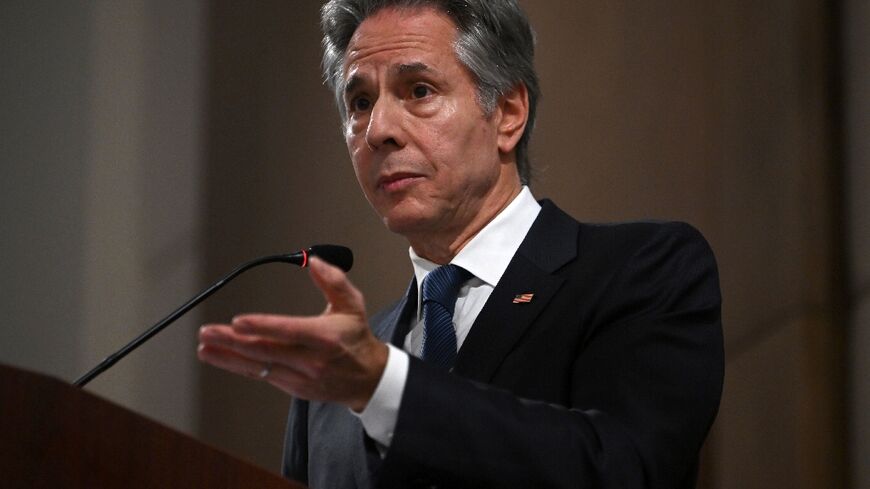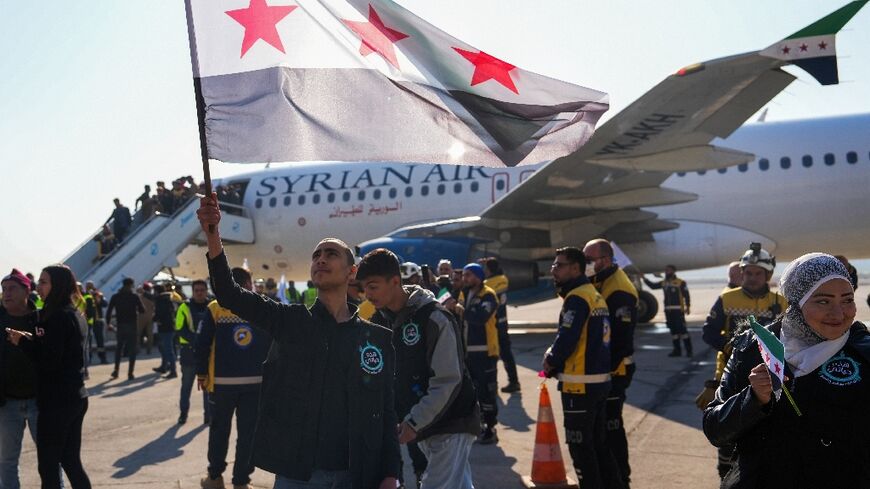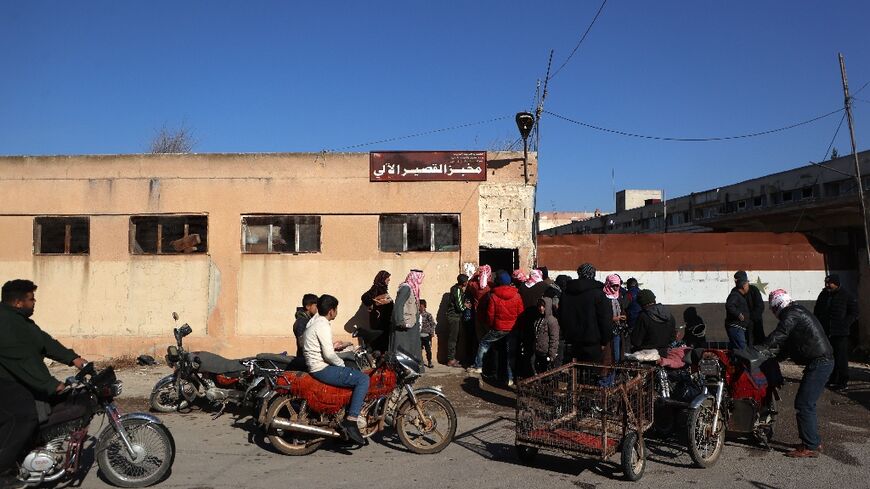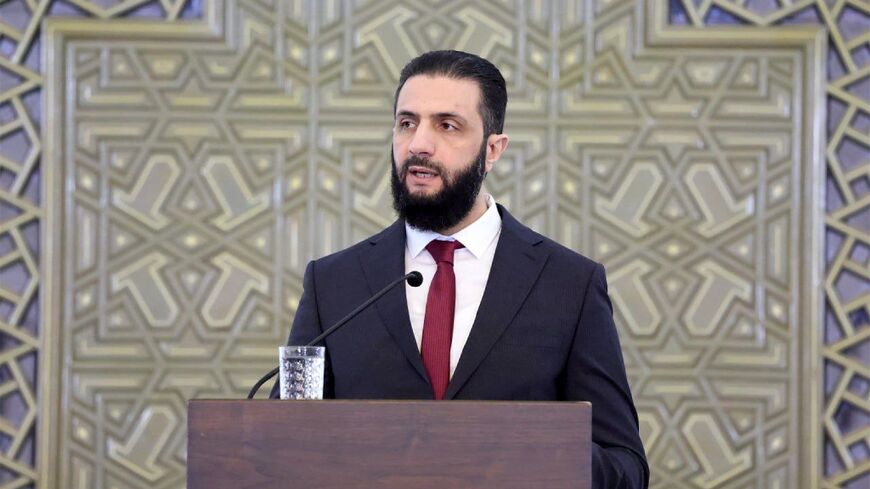Syria's leader says elections could take 4 years: Al Arabiya interview

Syria's new leader Ahmed al-Sharaa told Al Arabiya TV on Sunday that elections could take four years, noted the importance of ties with Iran and Russia, and called for the United States to lift sanctions.
In a wide-ranging interview three weeks after his Islamist group Hayat Tahrir al-Sham and allied rebels ousted longtime ruler Bashar al-Assad from power after a lightning offensive, Sharaa also said that local Kurdish-led forces which Turkey opposes should be integrated into the national army.
"The election process could take four years," Sharaa told Saudi-owned Al Arabiya.
"We need to rewrite the constitution" which could take "two or three years", added Sharaa.
United Nations Security Council Resolution 2254, adopted in 2015, outlined a roadmap for a political transition in Syria that included drafting a new constitution and holding UN-supervised elections.
Visiting UN special envoy Geir Pedersen this month said he hoped Syria would "adopt a new constitution... and that we will have free and fair elections" after a transitional period.
Diplomats from the United States, Turkey, the European Union and Arab countries who met in Jordan this month also called for "an inclusive, non-sectarian and representative government formed through a transparent process".
An interim government has been appointed to steer the country until March 1.
Sharaa expressed hope that the incoming administration of US President-elect Donald Trump would lift sanctions imposed under Assad on the now war-torn and impoverished country.
"The sanctions on Syria were issued based on the crimes that the regime committed," Sharaa said, adding that since Assad was gone, "these sanctions should be removed automatically".
- Russia, Iran -
Sharaa's Hayat Tahrir al-Sham (HTS), rooted in Syria's Al-Qaeda branch, is proscribed as a terrorist organisation by many governments including the United States, though it has recently sought to moderate its rhetoric and vowed to protect Syria's religious and ethnic minorities.
Sharaa said HTS's dissolution would be announced "during the national dialogue conference", without specifying a date, and emphasising that the dialogue would include all Syrians.
He also noted the importance of ties with Russia and Iran, both key allies of Assad, helping him claw back territory during 13 years of war before the rebels launched their offensive last month.
"Syria cannot continue without relations with an important regional country like Iran, but they must be based on respect for the sovereignty of both countries and non-interference in the affairs of both countries," Sharaa said.
Iran-backed groups including Lebanon's Hezbollah militants were heavily present in Syria under Assad, and Iran long provided what it described as military advisers to the Syrian armed forces.
"Russia is an important country and is considered the second most powerful country in the world," Sharaa said, noting the "deep strategic interests between Russia and Syria".
Assad fled to Russia as rebels closed in on Damascus, and uncertainty has shrouded the future of Moscow's naval base in Tartus and its Hmeimim air base, both on Syria's Mediterranean coast.
- 'Investment' -
"All Syria's arms are of Russian origin, and many power plants are managed by Russian experts... We do not want Russia to leave Syria in the way that some wish," Sharaa added.
He also said local Kurdish-led forces which Turkey opposes should be integrated into the national army.
Swathes of north and northeast Syria are controlled by a Kurdish-led administration whose de facto army, the Syrian Democratic Forces (SDF), spearheaded the fight that helped defeat Islamic State group jihadists in Syria in 2019, with US backing.
"Weapons must be in the hands of the state alone. Whoever is armed and qualified to join the defence ministry, we will welcome them," Sharaa said.
"Under these terms and conditions, we will open a negotiations dialogue with the SDF... to perhaps find an appropriate solution," he added.
Turkey accuses the main component of the SDF, the People's Protection Units (YPG), of being affiliated with the militant Kurdistan Workers' Party (PKK) at home, which both Washington and Ankara consider a "terrorist" group.
Sharaa also said regional powerhouse Saudi Arabia "will certainly have a large role in Syria's future", pointing to "a big investment opportunity for all neighbouring countries".





